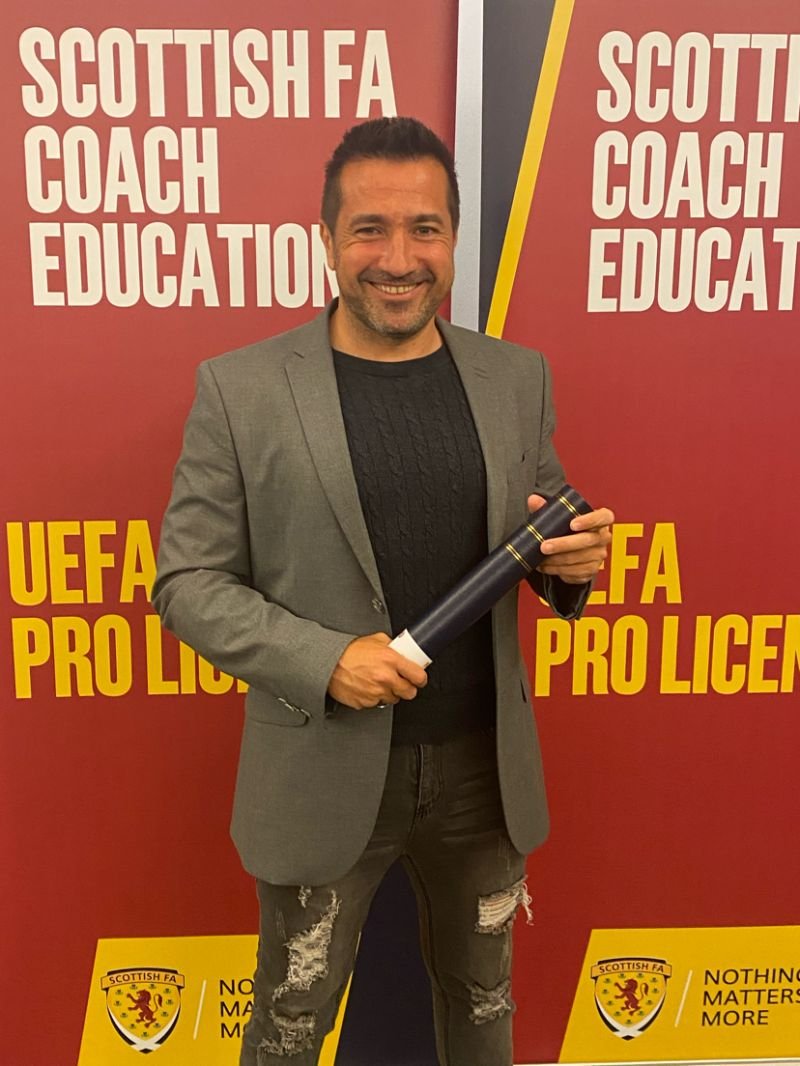
Fran Alonso
Houston Dash Head Coach in NWSL, UEFA PRO Licence Coach
Former Women’s Head Coach at Celtic Football Club, a professional boasting an extensive coaching background spanning over 15 years. Holding Youth Modules 1, 2, and 3 certifications, as well as qualifications in Coaching Disabled Footballers, FA Level 1 and 2 also an NVQ in Team Leading.
Having dedicated years to coaching in the Premier League, Fran’s journey includes experiences at the Academy and grassroots levels. His involvement with teams includes serving as the full-time Assistant Coach for Everton FC's First Team, coaching Everton Ladies voluntarily, and holding the position of Technical Director at Southampton Women's FC and Runcorn Linnets FC Youth, both of which are voluntary roles showcasing their commitment to nurturing talent across different levels of the game.
How would you define a parent’s role within the youth sports environment?
Parents play a very important role in youth football. I think parents, teachers and coaches are the biggest influence on children’s learning and therefore a key part of their development.
Parents should be responsible for implementing a good set of values in the youngsters that are going to be the guideline for their kids. Football-wise parents should be supportive, encourage good behaviours and efforts and not only ability, but some parents also have a negative football influence over their children or teammates, by putting too much pressure on them, shouting from the sideline, and providing tactical advice without the appropriate knowledge etc.
So parent’s involvement is very important but understanding where are their limits.
What are the benefits of embracing parental involvement in youth sports?
As I said earlier parents are key in their children’s learning and development therefore it is important that they get involved.
If a good value, good behaviours established by the coach is reinforced by the parents and vice versa, the message will have double strength and would be easier for the children to acquire it. That’s why is key that parents and coaches are always in the same page, children shouldn’t have crossed messages.
A good youth coach should first make sure the parents understand perfectly the values to be implemented, the standards required, and the team goals in terms of player development and football adherence.
How have you as a coach/club attempted to increase parental involvement?
Yes, I have, in grassroots football the training hours are between 1-3 a week which is not ideal, to maximise the learning experience for the children I used to set homework (technical and ball manipulation exercises) that was delivered by each kid’s parents, it was a great experience because not only increased the children’s hours on the ball but increased the parent’s enthusiasm for the team and as a result of the enthusiasm of the children also increased.
Also, we normally try to get parents involved in the club’s set-up, in any role that they are comfortable to do, even if it is as assistant coaches to help feed/collect the balls and keep the intensity during the session.
I have also set up private youtube channels to upload the footage from training and matches, sometimes tactical reviews or maybe just highlights from a PL game that I wanted the kids to review, obviously this was always done through the parents and some of them were learning as the same time than their kids.
Last season we were imposed at Southampton Women’s U-16’s a silent sideline match and it was in my opinion a completely non-sense, coaches unable to adjust tactically, parents and coaches unable to encourage good behaviours or actions, that’s in my opinion, nothing to do with the game and hopefully I will never experience something like that again.
What challenges have you faced in attempting to increase the level of parental involvement?
Some parents do not offer support or are unable to do so in a constructive manner, due to a lack of interest or lack of knowledge. Some others are over-involved and put too much pressure on their child.
This is a challenge because in the one hand you want to increase parental involvement and on the other hand, you only want the involvement that is beneficial for the children.
Have you seen any difference in players when parental involvement is embraced not neglected and/or ignored?
When setting up the homework and youtube channel for players I could see more levels of enjoyment from both parents and children so I saw a positive little difference.
On the other teams where parents got involved in the Club’s set up I did not see much difference in terms of levels of anxiety or enjoyment.
I would say to get the parents to help you coach your players when you are not there, it could be reinforcing values and behaviours, could parents and kids watching together some video analysis or parents helping the kids to do the homework you put for them.
This will maximise the learning hours of the players, help in their development and therefore make us better coaches because we shouldn’t forget is not about us coaches it is about the players.
What advice would you give coaches who are unsure and/or afraid about increasing parental involvement within youth sports?
For those parents unaware of their influential role within youth sports, what advice would you give them?
A crucial part of successful parental involvement is allowing children to enhance their identity as a part of the family providing balance to their identity as a top athletes.
It is about pushing your child whilst pulling back from being ‘pushy’. It is the coach’s job to offer the technical/tactical advice while the parents’ job is to supply the financial, travel and emotional support.
So I would say to parents that are a key part of their children’s development and learning, but also that when attending games to stick to the role as a parent, be encouraging, supportive but resist any temptation to compare him/her to team-mates.
Thank you to Fran for taking the time to complete the following interview questions.
Twitter: @FranAlonsoFA | LinkedIn: Fran Alonso









